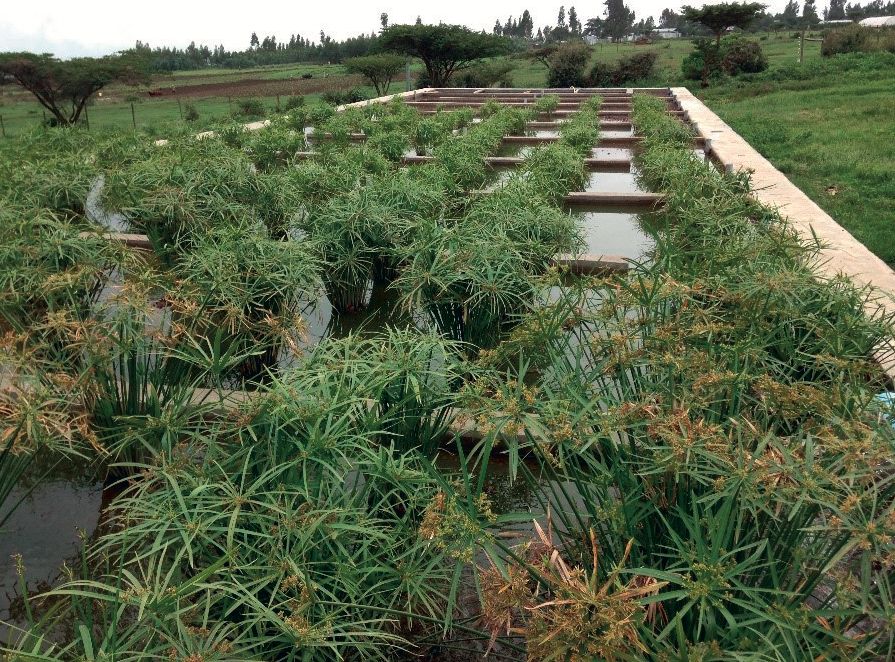Constructed wetlands can effectively reduce pesticide pollution caused by water discharged from greenhouses. The exact efficiency depends on the type of pesticides. Wetlands are part of sustainable cultivation programmes at various African production and young-plant companies. It seems like they work well in combination with their Integrated Pest Management (IPM) programmes.
The flower sector has become one of the most important industries in Ethiopia in recent years. While the sector continued to grow, there’s been an increasing need and demand for sustainably produced flowers that have a minimum impact on the environment and aren’t harmful to human health. The Sustainable Trade Initiative (IDH), the Floriculture Sustainability Initiative (FSI), Sher Ethiopia (Afriflora), Koppert and Ecofyt joined forces in several projects (between 2014 and 2019) to improve the ecological sustainability of the Ethiopian cut-rose production near lake Ziway.

Wetlands not new
Wetlands have proven to be very effective in reducing traces of pesticides in the water that’s discharged from greenhouses. Constructed wetlands are basically reed beds that filters the water. The reed bed system cleans the water through a process of filtration and microbial degradation. (..)
Click here to read the full article in Floribusiness magazine.
Click here for a free subscription to Floribusiness magazine.








